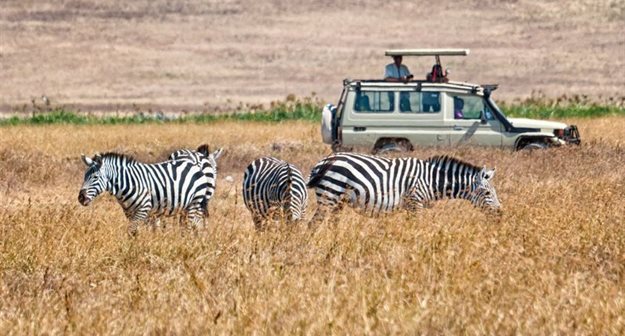
Related
Top stories






More news


Marketing & Media
Ads are coming to AI. Does that really have to be such a bad thing?














When policy-makers debate about the land reform programme, we must be careful to not be so fixated on agriculture that we lose sight of other opportunities such as tourism. Not all farms that have been transferred to beneficiaries of land reform through the restitution programme is arable land. Whilst some beneficiaries to the land reform programme are not skilled or inclined to utilise their land for agricultural purposes, it is important to note that some of these farms are not suitable for agriculture and have been used for other purposes such as eco-tourism in the past.
According to the Department of Environment, Forestry and Fisheries, approximately 30% of the country’s land is unsuitable for agriculture.
As South Africa is a popular tourist and business destination, it would be worthwhile to leverage eco-tourism opportunities within land reform and capacitate beneficiaries of the land reform programme in these areas to ensure that they rip some benefits from the tourism ecosystem.
The latest Statistics South Africa figures show that a total of 3,355,904 travellers (arrivals, departures and transits) passed through South African ports of entry/exit in June 2019. These travellers were made up of 1,080,305 South African residents and 2,275,599 foreign travellers.
Tourism has the ability to drive sustainable rural development and economic transformation if the removal of barriers to entry and the scaling of community tourism projects are prioritised. Land reform could hold the key to unlocking youth employment, and retaining skilled and tech-savvy young people who are capable of driving rural development.
Official statistics show that the tourism sector employs one in 22 South Africans. In 2017, the tourism industry contributed 9% of the total gross domestic product (GDP), once all the direct, indirect and induced benefits are taken into account. The industry contributed a sizeable R412.5bn to the economy, making South Africa the largest tourism economy in Africa.
Most land beneficiaries are rural communities and land reform holds great potential to contribute to the transformation of the rural economy. Research shows that by 2050, an estimated 80% of the population will reside in urban areas, with significant implications for rural development and growth.
We need to begin to invest in the development of rural areas which are still characterised by the lack of infrastructure, limited access to essential services and fewer economic opportunities. This space presents opportunities for investor participation and partnerships with beneficiaries of land reform, more so those whose land has been restored and are closer to or within areas of popular tourist attractions.
There are some good stories to tell on how the land reform programme has spurred tourism to ensure that beneficiary communities gain some foothold in the tourism sector.
Since its inception, Vumelana has concluded 20 projects, facilitating community private partnerships (CPPs) between land reform beneficiaries and private investors. Of these projects 12 are in the tourism sector.
These projects have the combined potential to generate R324m of investment within the tourism sector, create or save 1,364 jobs and benefit 6,520 households. These tourism projects include the Barokologadi CPA in the North West, Moletele CPA in Limpopo and the Mkhambathi Land Trust in Eastern Cape, among others.
In order for tourism to yield its intended benefits on rural communities, a conducive environment needs to be created, including creating an enabling legislative environment where communities with tourism projects receive requisite permits for tourism activities timeously, and where they are supported with skills and supply chain linkages and the funding they need – and this does not necessarily have to come from government; but can be generated through partnerships with private investors.
New entrants to the sector must be capacitated with business management and technical skills such as wildlife management and conservation, wildlife tracking, meat handling and taxidermy, hospitality, financial management and administration, marketing, knowledge on the use of industry technology and software, record-keeping and other tourism enterprise skills.
Successful land reform should be measured by its capability to improve the livelihoods of people, increase economic productivity, create much needed jobs in the rural areas and improve the living standards of the majority of South Africans who still live in abject poverty. With land reform once again on the spotlight, there is a need to explore a number of avenues to ensure that land reform is a success and areas in which additional investments in land reform can be channelled to address current community specific challenges. In this regard, it is important to leverage on existing and successful case studies and replicate these.